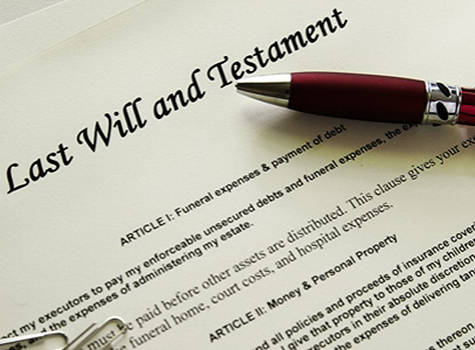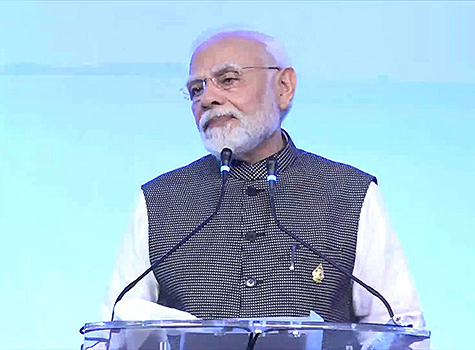
Estate planning means many things to different people. For the trustees of your estate just verbal understanding may not be enough, in the eyes of the law, to carry out your wishes when you are not able or when you are gone. If an elderly couple decides how certain special property (jewelry, heirlooms, antique furniture, art collection, vacation home on the beach or similar things) should be distributed to their children but it is not documented anywhere, how much validity those wishes really have even if they may have mentioned it to the children? The correct answer is very little. It is usually a good recipe for much bickering and confusion after the owner dies.
The same thing can be said about taking care of the children when young parents die suddenly, say, in a freak accident. They are totally unexpected and never desired, bust such events can and do happen. The real message in all this is that we need to be ready for it. This is where estate planning comes in the picture. So, for now, lets go over the minimal list that we must look at to have our estate planning under wraps.
Master directory:
It is almost essential that we need to have all our key documents in one place. It should be readily accessible to the key players (like the trustees or guardians) when we are gone. Not only is it good for you to have all such paperwork in one place, but they also help the trustees who will take care of these things later so that they don’t waste their time gathering them.
What key documents could those be? Starting with you Will, Power of Attorneys, checking and saving accounts, IRAs, 401K info, titles, life insurance papers and myriad similar documents. It could be a long list.
Designate beneficiaries:
Every asset you have should have a beneficiary, otherwise you are asking for trouble and chaos afterwards. Back in the 1980s and 90s when Banks and financial institutions were not very vigilant about getting people to name beneficiaries when they opened new accounts, especially IRAs, there were some ironic situations created when the actual time came for distribution. I know a few cases where the life insurance and IRA money actually went to the divorced spouse because nobody had bothered to change the documents after the divorce. Think especially hard about who the beneficiaries should be and then the names must be reviewed every year to make sure you still want those names.
Draft a will:
Little over 50 percent of the US population does not have a will and the sad part is that this is quite perilous. A Will is not effective until the person dies and hence while the person is still alive it can be changed as your wishes change. But Will is what is followed for understanding and knowing what the deceased person wanted to get done. Nothing else is legal. Verbal promises, wishes and commitments do not stand up well in court. Creating a Will does not cost much and it is the least action one can take.
Guardians for minor children:
Young families do not think in terms of what will happen to their children if they die. Granted it does not happen that often but it can and does happen. They must have a plan so that their children will be taken care of just the way they would care themselves. What it means is that they have to find guardians (friends, relatives or others) who will have the same values as they would about raising children. This is tough to do, but it must be done. Otherwise the State steps in, follows its own rules and those will not be what you would want for your children, that much I can assure you.
Guardians for self when disabled:
As mentioned above, the same thinking goes for when we get older, much older; when we cannot take care of ourselves. Some solid, plausible plan is necessary for such event and it is never too late to start searching for it now.
Custodian for assets for minor children:
Following the scenarios I have painted above for the guardian for minor children, the same applies here too, if you are unable or not around, somebody has to step in and make sure that the assets of minors are handled properly. Generally, much soul searching needs to happen first and then searching for the right people is required and it takes a long time to arrive at some names that you can trust completely. Do not underestimate all these three scenarios. Children’s guardian and assets’ guardian can be the same person.
POA, healthcare proxies and other financial matters:
Wills come in the picture when you are gone; they are not needed when you are alive. POAs (power of attorney) are needed when we are still alive and are useless when we are gone. POAs can be very useful when we are away, sick, disabled or for many similar reasons. Healthcare proxies are when there is a need to make decisions about your health when you are not in a position to make them; like when unconscious, in surgery, confused, in coma or any such situation. Somebody else must be available who would know all about your desires and wishes and make the appropriate decisions for you. State of North Carolina has a standard form for this, which is accepted anywhere in the state.
Living will:
If you have any special desires or wishes as to how the events after the death should take place they need to be noted here, along with disposing your estate and other matters. Whether it is cremation or burial, whether the body or body parts should be donated to the advancement of science and all similar thoughts should be noted here.
Trusts, if necessary:
Not too many people will need a “trust” given the legal conditions today; however, one scenario where you would need a trust is when you have a compelling reason to control your assets well after you are gone.
———
Mo Vidwans is an independent, board-certified financial planner. For details visit www.vidwansfinancial.com, call +1 (984) 888-0355 or write to [email protected].



